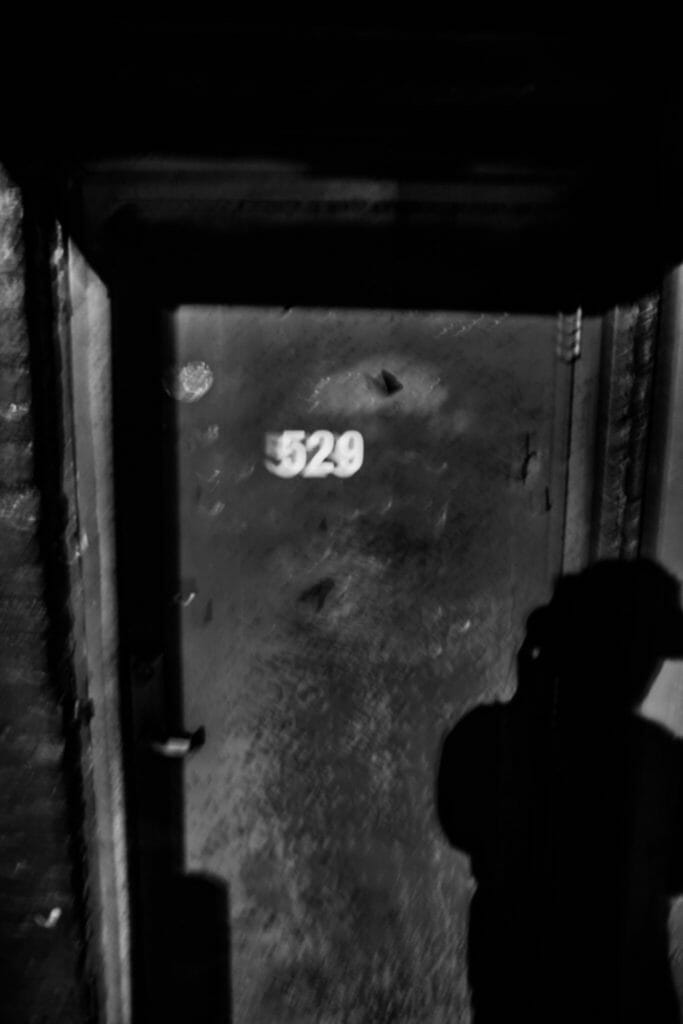On March 30, 2020, our editor-in-chief Aja Arnold sat down via Zoom with Tim Franzen and Sanae Alaoui of Housing Justice League (HJL), an Atlanta organization that fights for housing rights, including helping renters and homeowners to avoid eviction resulting from the COVID-19 crisis. The three were also joined by Israel (last name withheld for confidentiality), a renter who recently lost their income. You can learn more about HJL and Israel’s experience working with them by listening to the full interview here on the Mainline Podcast.
Below, we’ve shared interview highlights that provide answers to some common questions about the options and solutions available to Georgians who are experiencing housing insecurity during these uncertain times. Yep, you heard us right: with community solidarity and organizations like HJL, there can be solutions.
How many people is this affecting?
Tim Franzen: Well, there\’s no exact numbers. We know there\’s a million people that have applied for unemployment. We know that the service industry, just in Atlanta alone, in one day lost 100,000 jobs. We know that on April 1, there will be hundreds of thousands of Georgians that will not be able to pay any rent. And there\’ll be more that won\’t be able to pay a portion of rent come May 1. You know, based on economic projections, people are saying it\’s likely going to be several million Georgians that will require rental assistance to avoid an eviction.
A lot of folks are talking about rent strikes. What are these, and is this a good time for them?
I think what we\’re trying to do is go beyond simply saying “rent strike,” because the reality is that there are some real financial ramifications to simply not paying rent.
TF: I think oftentimes when [people] hear the term “rent strike,” they think in terms of a political campaign to win something, to change the behavior of capitalism, or to change the behavior of their landlord or property management company. That is not what\’s going on here. What\’s going on here is that the term “rent strike” is being brought up simply because people don\’t have money to pay. I think what we\’re trying to do is go beyond simply saying “rent strike,” because the reality is that there are some real financial ramifications to simply not paying rent. So right now, what we\’re telling folks is, Hey, we have a process that will help you open negotiations with your landlord and help to get some sort of written agreement that you\’re not going to incur debt in the future. [By] just saying “rent strike,” we\’re putting people in a position where they might experience a debt that could be in some instances debilitating.
If you\’re out of work for a couple months and now you owe three months rent and you got a payment plan, now you\’ve got all the other added fees and interest to that. We\’re trying to help people avoid that … we think it\’s better for us as community members to deal with this right now as opposed to waiting, just simply not paying rent and waiting for six months down the line. And so a rent strike is not even, it\’s not even something to debate for some folks. They don\’t have a choice. They are forced through this pandemic and their personal economic situations to participate in a rent strike. So I think it\’s important for those of us that do have resources to be in solidarity with those folks.
Again, the reality is that this isn\’t a political situation for a lot of folks. They just don\’t have a job and they can\’t pay.
We\’ve got to recognize that people are coming at this from totally different… you know, some people are working less, some people aren\’t working at all. “Rent strike” is just kind of something you say; one size fits all, just rent strike. But I think when people are saying that, they should also be thinking about all of the very real ramifications. This is a moment where we\’re seeing the weakness of capitalism, but we also are probably going to still live in it after the crisis. You know, there ain\’t going to be an overnight change. And in the current system, you still have evictions. You still have this [thing] that stays on your record. And we want folks to avoid that, especially folks that are already living on the verge.
How does Housing Justice League help renters who are facing eviction?
Sanae Alaoui: Even though we\’re not using rent strike language, I do want to mention the core of this is tenant and working class solidarity. Basically, someone calls and they can\’t afford rent. We try to figure out if they\’re willing to fight for their home and the right to remain in their home, through negotiating with the landlord, through organizing, and an almost emergency tenant union if they are in a multifamily unit. We\’re there to support them along every step. If we\’re getting a call from someone who\’s in a large apartment complex, we want them to talk to their neighbors and figure out how many people are also dealing with the same situation. Another key component here is that people are not dealing with these kinds of situations in isolation, which is I think how a lot of people might see solutions that have been suggested that people apply for rental assistance and stuff like that. There\’s not going to be enough rental assistance for everyone. This is a matter of solidarity where people who are experiencing the same thing can get together and make the same demands. The hotline is to get as many resources as possible to renters [of] being able to organize a tenant union and make demands, as well as have access to all of the legal documents regarding eviction moratorium. We have those up on our website as well. If the landlord is trying to do something illegal, they can say, “Well, actually, here\’s the official letter from the magistrate court of XYZ County that says that you actually can\’t evict me right now.”
Even though we\’re not using rent strike language, I do want to mention the core of this is tenant and working class solidarity.
TF: One of the reasons we want to do the hotline is that we don\’t want people suffering in silence. The only way for us to really identify all of these egregious landlords that are doing the absolute wrong thing at the wrong time is to have a way for folks to reach out to us. So in our model — that would be the model of the hotline — we first send a letter. We assume the landlord is not a terrible person and they care about the human life that\’s been generating wealth for them, and we give them the opportunity to do the right thing. If they don\’t do the right thing, then our next escalation in many cases is to put a call in as [the] Housing Justice League. If all else fails, then it comes to old fashioned public pressure. We\’ll be asking our base to make phone calls, to send emails to whoever the target is. In many cases it\’s going to be a landlord or property management company … and that is going to be the moment where we all have to have each other\’s backs.
What about people with mortgages? Does HJL help them?
TF: We absolutely do want homeowners that are facing a crisis related to COVID-19 to call us. And we do recognize that there are a lot of middle and low income homeowners, especially in the state of Georgia. And that many of the big banks — Wells Fargo, Chase, and Bank of America — are all offering a thing that they\’re calling a “mortgage pause.” It\’s not debt forgiveness, but it also does not put you in any kind of further debt. Essentially, it\’s like pressing pause on a device. It just stops. And then when the state of emergency is lifted, you press play on your mortgage again. But I should be clear, not all servicers of mortgages are offering a mortgage pause as an option. And so we especially want those folks calling us.
How can people help? Is HJL currently looking for volunteers?
SA: There\’s 25 people [volunteering at HJL], and then there\’s a smaller core group of people who are doing callbacks and walking people through how to start negotiating and talking to their landlord and/or dealing with mortgage stuff as well. What we do need is volunteers who are willing to be part of the core group of people that call people back. That would be a little bit more intense training to know how to walk people through the process. Of course you can start as the first point of contact if you feel more comfortable, but eventually move — not even eventually, probably as quickly as possible — move into being part of the core group of people that are calling people back. That\’s really where we need new people right now, because a lot of the calls someone has to walk through with these people on each step.
TF: The good news is that we [are] training right now. We\’re doing a couple of trainings a week to get new folks answering the phones. We\’re expecting these calls to double, maybe even triple, when we get to April 1st through the 10th. And so we are quite desperate for new volunteers.
We’re going to be asking y’all to have the backs of those tenants that are living in there
With the Housing Justice League, we\’re going to be putting out notices of landlords that are doing the wrong thing. We\’re going to be asking y\’all to have the backs of those tenants that are living in there and make sure that they don\’t have to leave while this crisis is going on and they don\’t incur debt that would have a deep, grave effect on their lives. And so we\’re going to need a lot of phone calls, a lot of emails, and folks need to be ready to make those calls.
Thanks to the Housing Justice League and Israel for taking the time to speak with us. We encourage you to visit their website and call them with any questions you may have. We’ll continue to provide updates as new information and resources become available. Y’all be safe, and look out for one another.
If you are interested in volunteering with HJL, you can register here.




